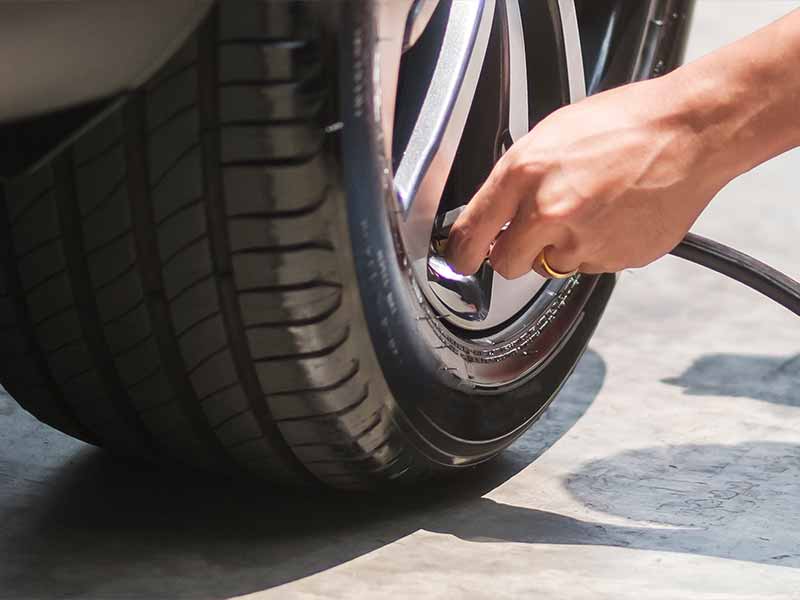Jumping in your car or truck in the morning to head to work and seeing your tire pressure monitoring system (TPMS) light warning you about low tire pressure is frustrating. It could be due to temperature or tire leaks.
Why Is My Tire Losing Air Overnight?
All tires lose air pressure slightly when they get colder. Tire pressure drops 1 psi for every 10-degree drop in temperature.
A significant overnight 10 psi pressure loss is likely due to a slow leak from a valve stem, small tire puncture, poor rim seal, or damaged wheel.
If your tire loses air overnight, it could just be the temperature outside. But there are many other causes to consider. If your tires are losing 10 psi or more overnight, you can be reasonably sure the reason isn’t due to temperature.
Let’s take a closer look.
Temperature Change
If you’re only noticing a drop in tire pressure of a couple of pounds when you get in your car or truck in the morning, chances are it’s a normal pressure drop due to the cold air inside your tires having contracted and exerting less force on the tire.
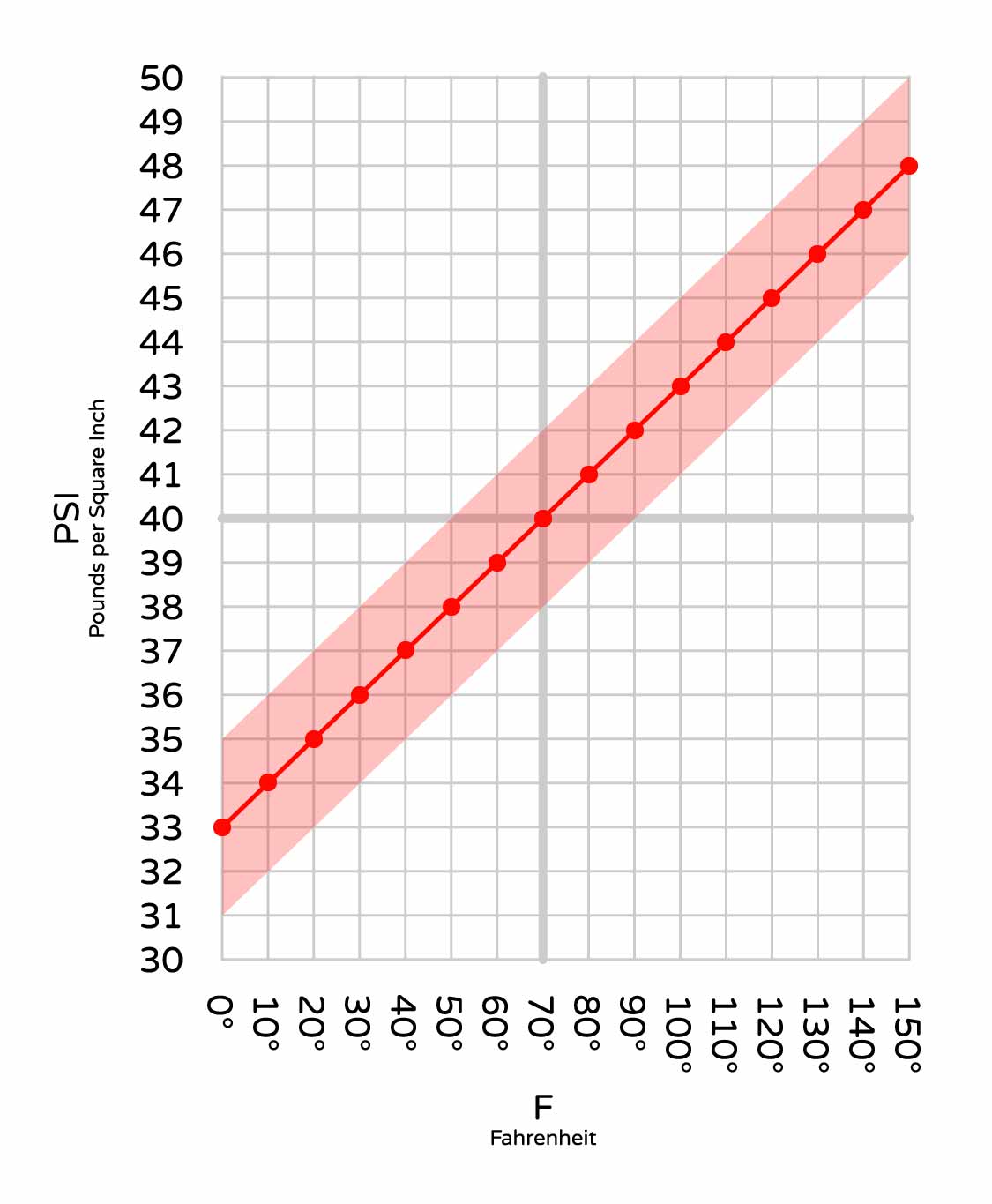
When air heats up, it expands and contracts when it’s cold. You can see this effect in action by filling a balloon with air and putting it in your freezer for an hour.
When you pull the balloon back out of the freezer, it will be significantly more deflated-looking than before you put it in the freezer. You can then leave the balloon sitting on a table at room temperature, and it will begin to grow in size again.
The same thing happens with your tires every day. The bigger the temperature change between day and night, the bigger the difference you’ll see in your tire pressure.
Slow Leak In Tire
Slow tire leaks often cause more substantial drops in pressure overnight. There are several points of failure that can be the cause of air leaks. The following are the most common causes of a slow leak in a tire.
Valve Stem
Valve stems can have problems with the valve core or the seal between the valve stem and the wheel. A faulty valve core is an inexpensive fix since the valve core itself can easily be replaced and doesn’t cost much.
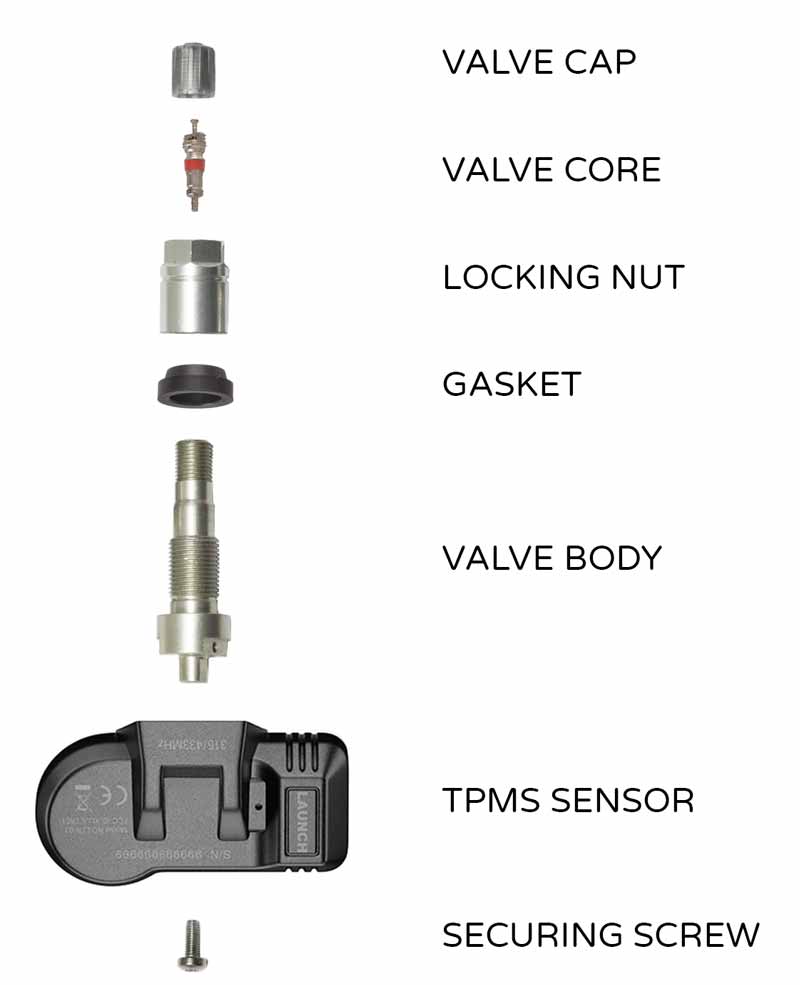
Rubber valve stems tend to suffer much fewer problems with air leaks. Metal valve stems are more prone to leaking when a new valve stem is installed or becomes damaged.
Puncture
A puncture by road hazards such as a sharp object is the most common cause of pressure loss. Often your tires will not have a noticeable difference immediately after becoming punctured. Over time the air will leak away and become a problem.
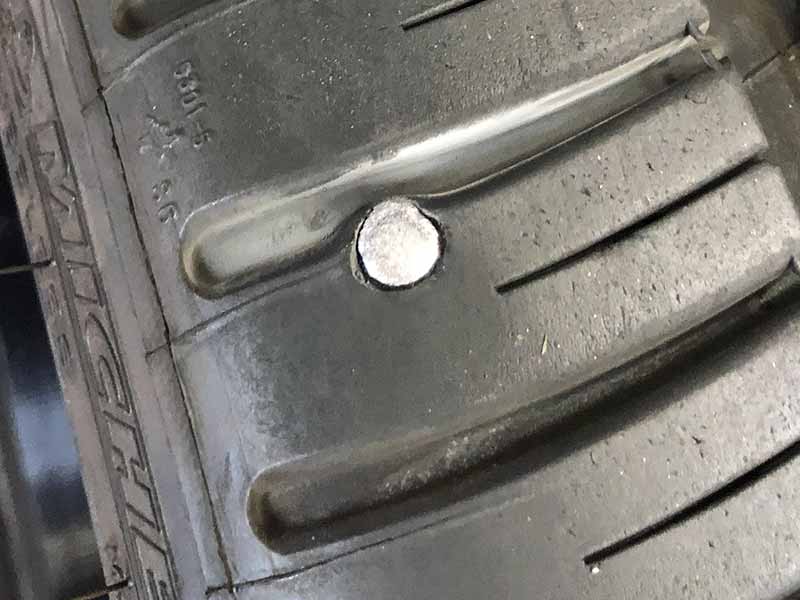
You can search for small punctures in the tire tread or tire sidewalls. Usually, a plug kit or tire sealant can stop the leak in the tread area and allow you to continue on your way. More severe punctures, or those in the sidewall or shoulder of the tire, aren’t patchable and will require replacement.
Tire Bead
The tire bead fits into the bead seat of the wheel and presses against the rim. The tire bead must tightly fit against the rim to create a good seal and prevent air from escaping. If there is damage to the tire bead or rim, it can prevent it from sealing well and allow air to escape slowly.
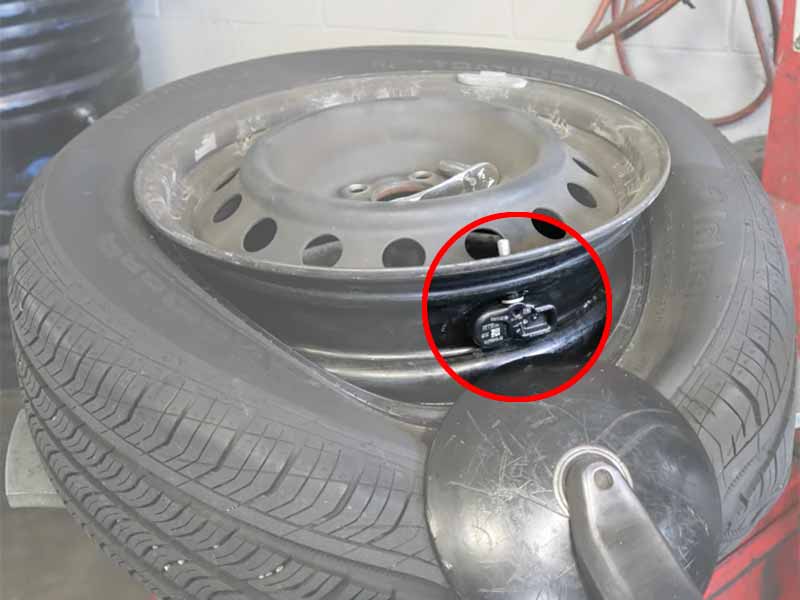
Tire damage caused by a large pothole could lead to tire bead failure. Also, bead chunking due to aggressive handling during tire mounting can damage the tire bead and make it impossible for the tire to create a seal around the bead seat.
Damaged Wheel
A bent wheel can prevent the tire’s bead from being able to seat properly against the rim, allowing air to escape. Tire beads need to have a smooth and consistent bead seat around the wheels to maintain proper air pressure.
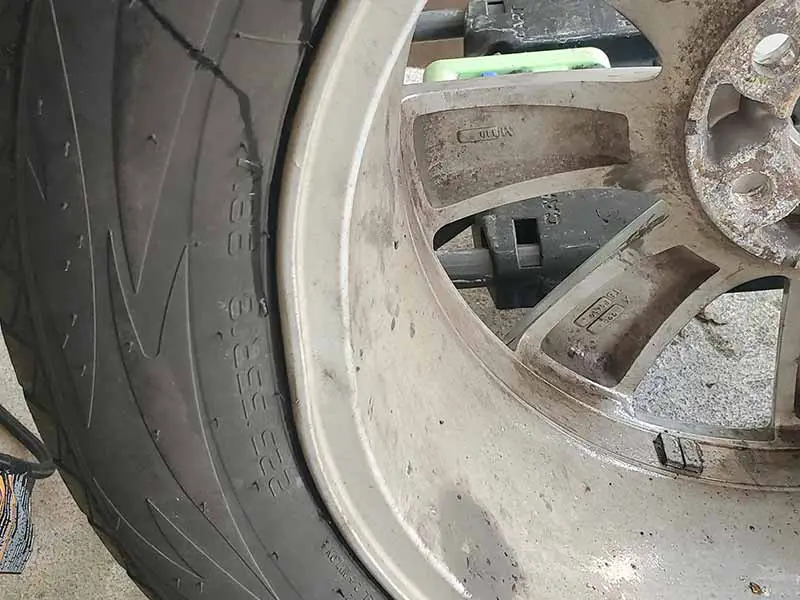
Minor wheel damage can be repaired, but significant damage may require replacing the wheel.
Dry Rot
As tires age, the rubber becomes brittle and cracks. Older tires can begin to leak air slowly as the rubber degrades over time. Eventually, this can allow air to escape through the tiny cracks.
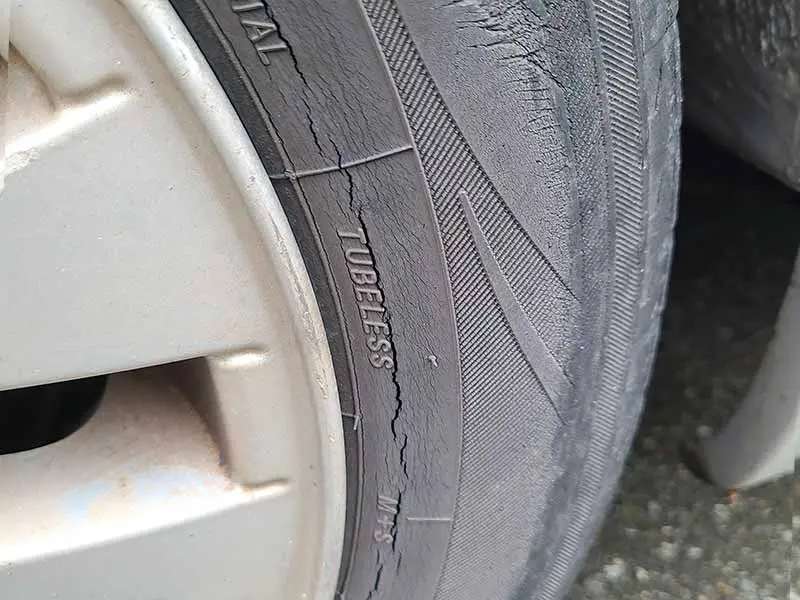
The rubber used in tires is usually only good for 6 to 10 years. It’s recommended to replace your tires after 6 years. This is especially true if you’re seeing signs of dry rot.
You can check the age of your tires by finding the DOT code molded into the tire’s sidewall. The last four digits are the week and year of manufacture.
Tire Losing Air Pressure But No Leak Found
All tires will lose air pressure over a long enough time. For a tire to lose air pressure significantly overnight or even over a few days, there must be a leak somewhere. But a significant drop in air pressure over a few days or less must leak air from somewhere.
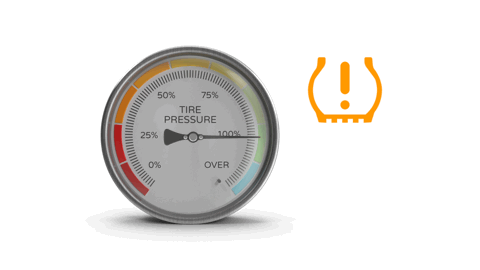
Very slow leaks can be difficult to troubleshoot. They may not leak air quickly enough to cause bubbles when sprayed with soapy water. They may also be from hidden damage to the wheel and not be a problem with the tire.
If you cannot find the damage yourself, you may need to take your car or truck to your local tire shop and have them troubleshoot the issue. They should be able to isolate the problem to the tire, wheel, or valve stem.
Tire Went Flat Overnight But Now Holds Air
It can be very confusing when a tire randomly loses air pressure. Sometimes it’s just a slow leak. Other times it can be a defect in the valve stem or even a puncture or poor seal that only occurs when the pressure on the tire is in just the right location.
Most of the time, tire leaks will be consistent, and air escaping will be continuous. But other times, air leaks can speed up, slow down, or even stop depending on where the leak is and how the tire flexes.
For instance, if there is a slow leak due to a nail or screw, there may be very little air loss since the foreign object plugs the hole. If you park your vehicle in such a way that causes the spot with the hole in the tire to flex open more, your tire could suddenly begin losing air more quickly.
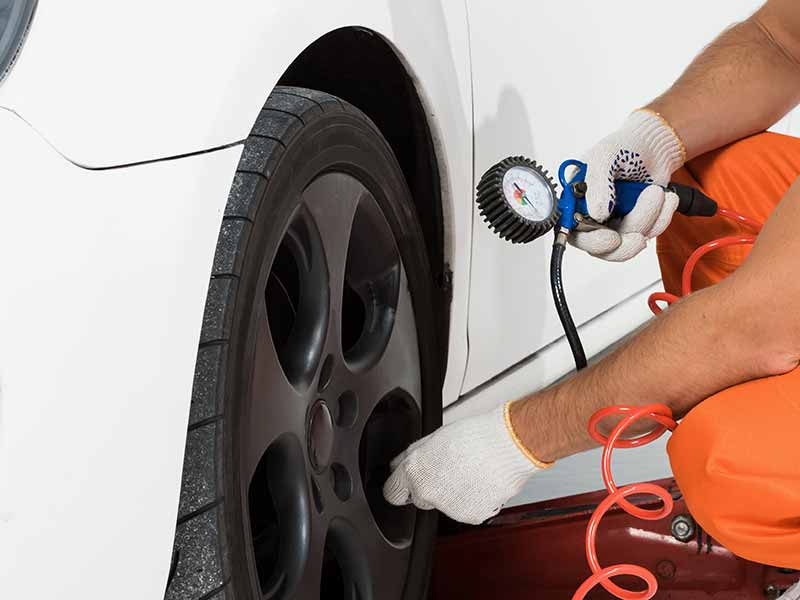
Alternatively, the problem may not be due to the weight of your vehicle flexing the tire but because the tire is cold and not sealing as tightly around the defect. This is especially true as the temperature drops during the night. Hot tires will expand and can slow or even stop minor leaks when heated by the sun or driving forces.
This type of problem could be challenging to troubleshoot. You will want to reinflate the tire without moving your car or truck to find the leak. Spray soapy water around the tire’s and wheel’s base and check for bubbles.
If this doesn’t produce results, you will need to continue around the tire or visit your local tire shop and have them diagnose the problem.
Brand New Tire Flat Overnight
It may seem like the least likely time you’d experience a flat tire is the following day after purchasing new tires. Unfortunately, this frustrating situation is more common than you might expect.
When mounting new tires, there are several points of failure that can cause them to leak air slowly overnight and leave you with a flat tire the following day. A bad valve stem, a poor seal of the tire bead against the rim, or even tire damage or a manufacturing defect.
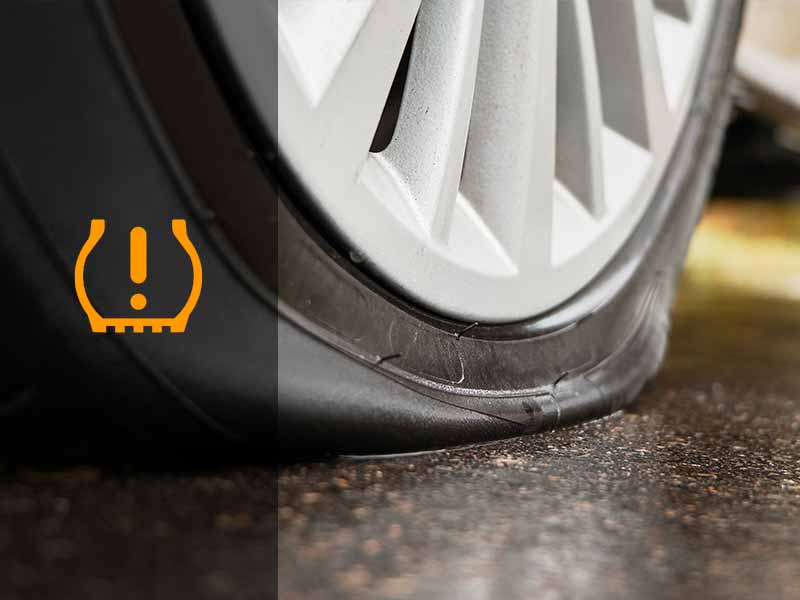
If you find yourself in this situation, you’ll need to contact the shop that mounted your tires and have them fix the problem. They should be able to quickly find the source of the leak and fix it for you.
I recently purchased 2 new tires and had a slow leak in one of them. The cause of the leak was a leak in the valve stem seal. While it was inconvenient to go back to get this problem fixed, these issues happen. It was a quick fix, and I was back on the road quickly.
Resources
Below are some links you may find helpful when learning about tires
- How do I find and stop a slow tire leak – Cars.com
- When tires lose air even with no visible punctures – Tires Easy
Final Thoughts
If you have a tire losing air pressure overnight, more than 10 psi, you probably have a slow leak somewhere. Sometimes tire repairs can solve the problem, while the issue could be more severe for other tires and mean you need a new tire or wheel.
To ensure safety, you should get the issue resolved quickly and avoid driving at high speed until you are sure the problem has been fixed. Keep an eye on the pressure and manually check with a tire pressure gauge if your tire pressure monitoring system doesn’t display individual tire pressures.
Good luck and happy motoring.
